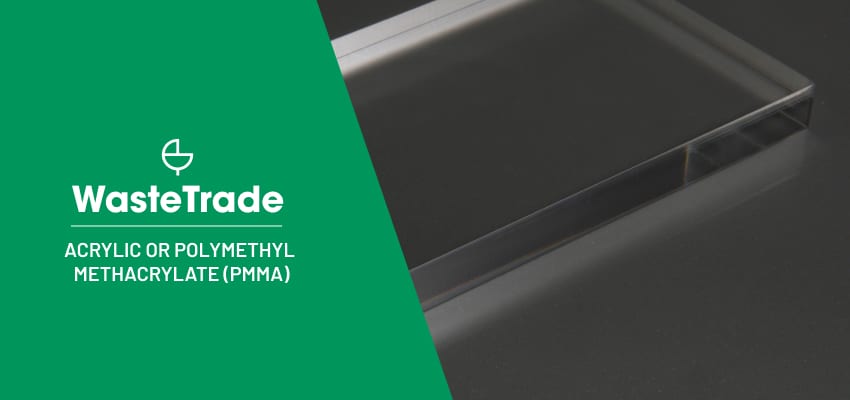Acrylic or Polymethyl Methacrylate (PMMA)

Acrylic is a transparent plastic material with a high level of optical clarity. It is also known for its light weight, making it an ideal material for applications where weight reduction is a concern. Additionally, acrylic has a high resistance to weathering and impact, making it suitable for outdoor applications such as signboards and glazing materials.
Acrylic also has low thermal conductivity, making it an effective insulation material. It is also highly resistant to UV radiation, which helps to prevent yellowing and degradation over time. The material is also flame-resistant, making it suitable for use in building and construction applications where fire safety is a concern.
Acrylic Plastic Sheets

Acrylic sheets are widely used in a variety of applications due to their versatility, transparency, and light weight. They are commonly used as glazing materials, signboards, and displays. In the field of optics, acrylic sheets are used to produce lenses and prisms due to their high level of transparency and low refractive index.
Acrylic sheets are also commonly used in the construction of aquariums, as they are both safe for aquatic life and easy to maintain. Additionally, acrylic sheets are often used in the manufacture of products such as bathtub liners, shower enclosures, and skylights.
Is Acrylic Plastic Recyclable?

Acrylic plastic is recyclable, although the recycling process is not as well-established as it is for other plastics such as polyethylene terephthalate (PET) and high-density polyethylene (HDPE). One of the challenges in recycling acrylic is the need to remove impurities, such as pigments and coatings, which can lower the quality of the recycled end product.
In addition to the challenge of removing impurities, the recycling process for acrylic is also hindered by the low demand for recycled acrylic. This low demand is due, in part, to the high cost of producing recycled acrylic, which makes it less economically viable compared to producing virgin acrylic from raw materials.
Despite these challenges, efforts are being made to increase the recycling rates of acrylic plastic. For example, some companies are developing new processes for recycling acrylic that reduce the amount of impurities in the recycled material, and increase its overall quality. Additionally, some governments are implementing policies and incentives to encourage the recycling of acrylic and other plastics, which will help to increase the demand for recycled acrylic in the future.
In conclusion, acrylic plastic is recyclable, but the recycling process is currently limited by the challenges of removing impurities and the low demand for recycled acrylic.
Recycle PMMA with WasteTrade
If you are a business owner looking to recycle your PMMA waste streams, WasteTrade can connect you with ethical recyclers around the world. WasteTrade is a platform that connects businesses with waste management companies specialising in recycling plastics. By registering with WasteTrade, businesses can find the best recycling solutions for their PMMA waste streams. Register with WasteTrade today to take the first step towards a more sustainable business.
